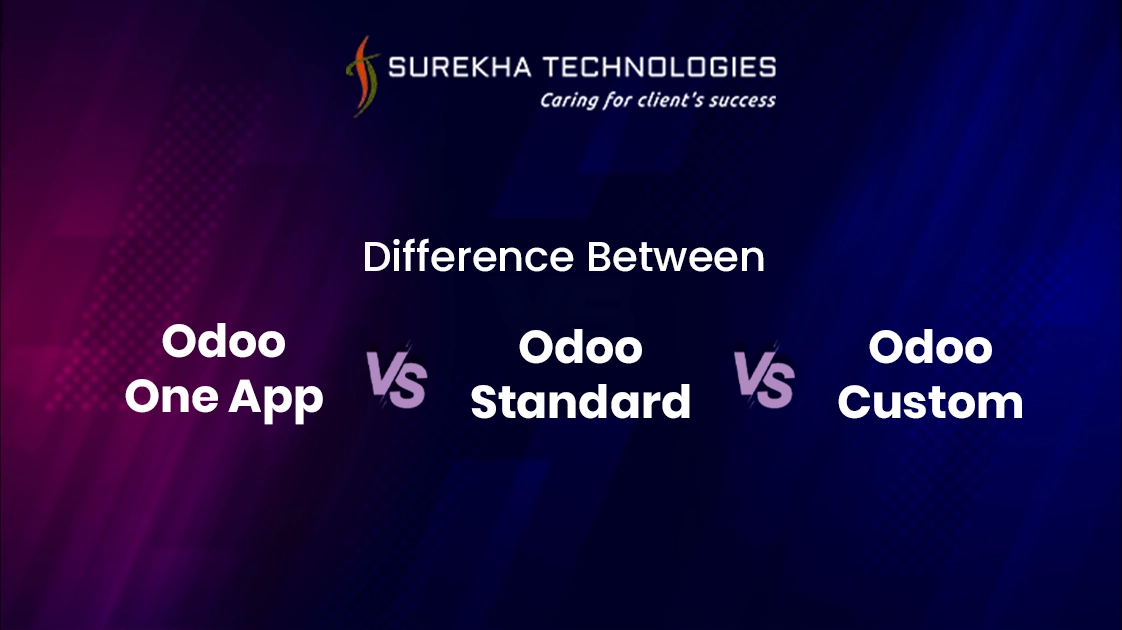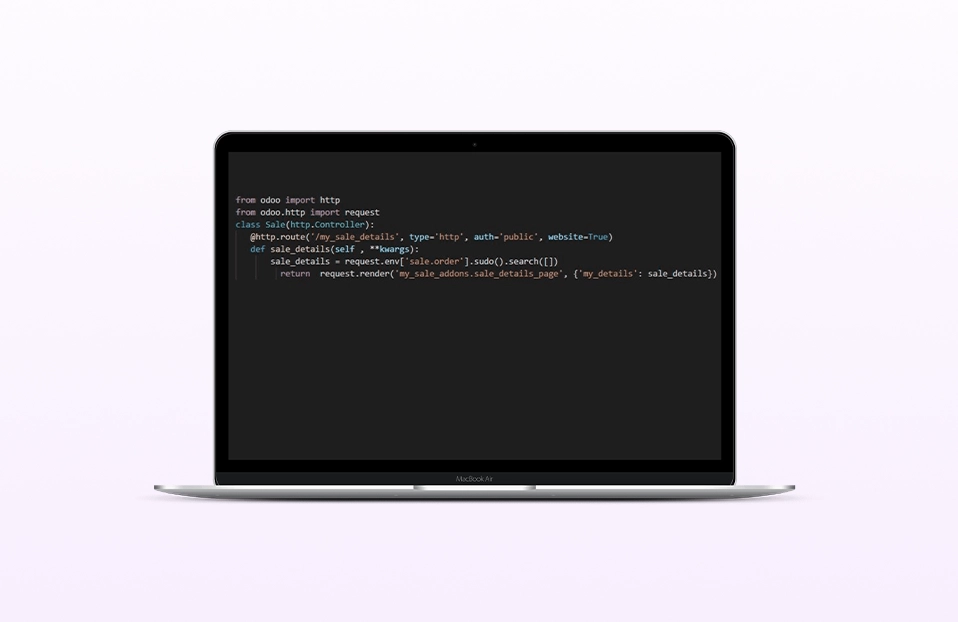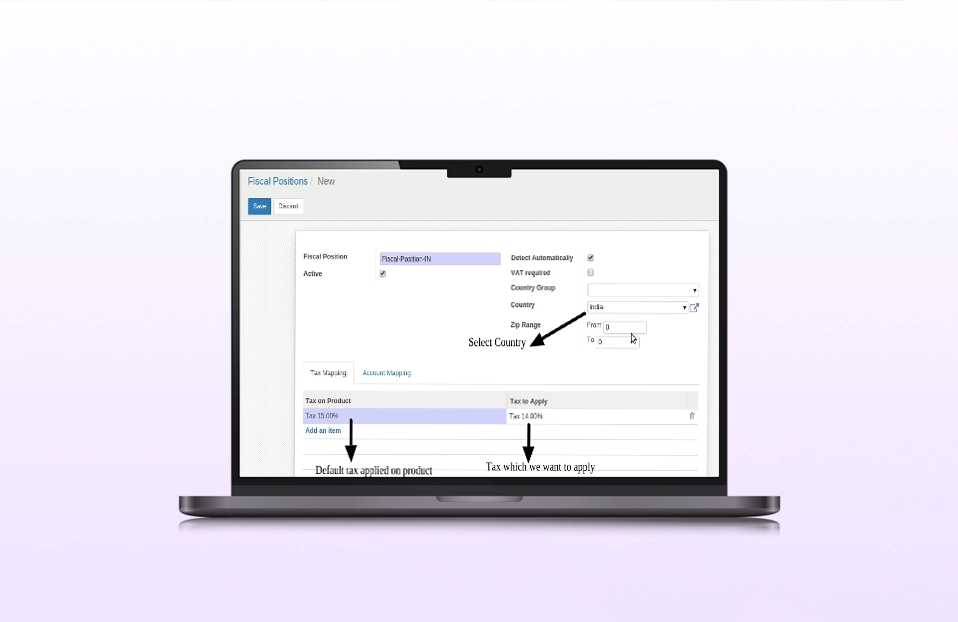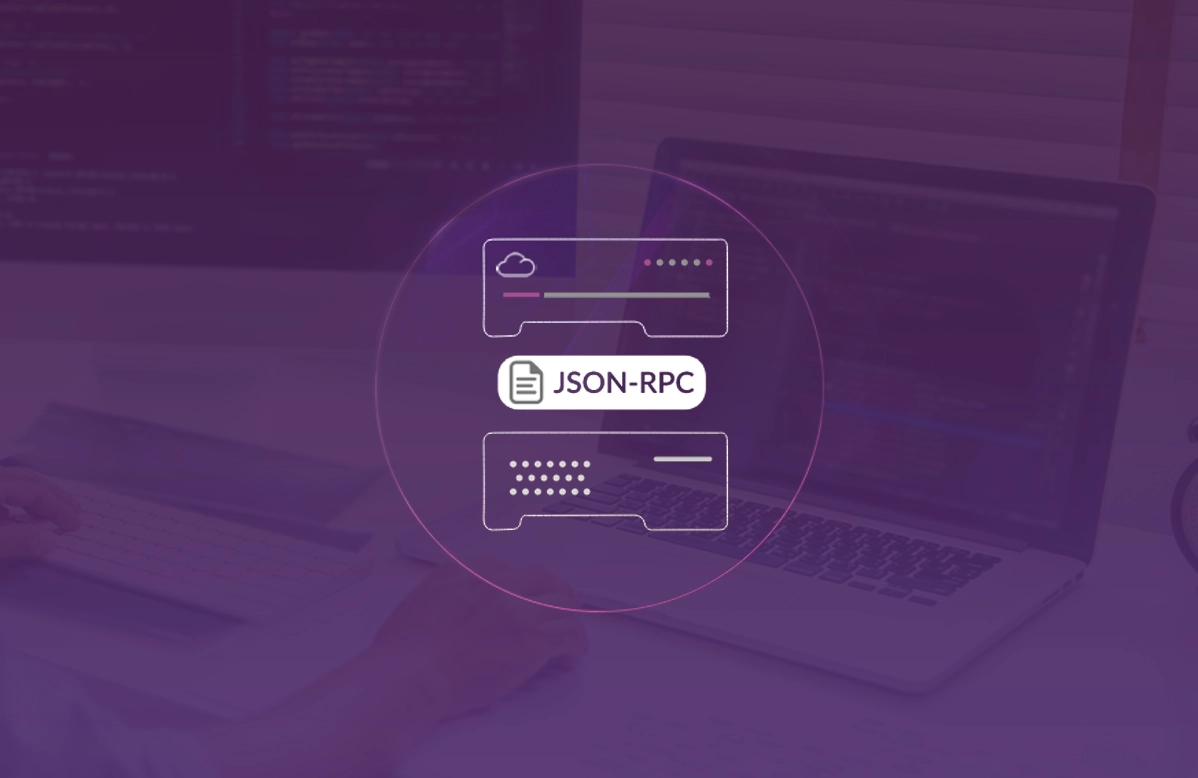Odoo is one of the most prominent ERP or Business Operation Management software in the market. It provides multiple plan offerings for the enterprise version. Sometimes, users cannot understand the difference between these offerings and often get confused about what to choose. In this blog, we’ll be providing differences between the Odoo plan and what may be the best suitable offering for users as per their use cases.
There are three pricing models available in Odoo ERP services to fulfill the requirements of different users as per their business needs.
1) Odoo One App:
As the name shows that in this model there is a single module that multiple users can use. If someone wants to check the feasibility or for testing, this can be the option. Odoo one app can be also useful when someone wants to migrate from one ERP to another, they can use this as a trial. i.e., Zoho to Odoo.
2) Odoo Standard:
When there is a need for over one application users can go with this option. However, in Odoo standard users can only manage a single company. A user chooses this option when the user handles one company. Also, an important point to note is that this is Odoo’s SaaS offering, which does not allow users to add any customization or install 3rd party apps.

3) Odoo Custom:
Odoo custom offering has 3 different options. [1] Standard Cloud Hosting [2] Self Hosting [3] Odoo.sh. Let’s look at what is the difference between them and what is a suitable option for users as per their needs.
[1] Standard Cloud Hosting: This is the same as Odoo standard, except it allows users to manage multi-company and Odoo studio for adding moderate extensions to default functionality like custom models, fields, and so forth
[2] Self Hosting: When a company wants to manage the Odoo installation and data on its own server, this option is suitable for them. It’s expected that the company has an in-house IT team to maintain and scale the server infrastructure based on usage.
"Another important factor that drives the selection of this offering is when users want to extend Odoo to map their business functionality and want to install third-party modules from the Odoo marketplace."
[3] Odoo.sh: This is Odoo’s Paas + IaaS offering that offers users to use Odoo in cases that need Odoo customization. Also, if companies don’t have a dedicated IT team to manage the server or don’t want to take a headache to manage the server infrastructure by themselves. Odoo.sh is using. Google Cloud Platform to manage your Odoo installation with integrated CI/CD functionality, high availability with 24x7 monitoring from Odoo. Cost addition with Odoo.sh is based on the number of workers, storage space, and staging servers that users want on top of their enterprise licenses.
Conclusion of Odoo Standard vs Odoo Custom
These three pricing models have their own advantages and it is hard to choose one of them but it simply depends on the user’s business operations. Also, For the above models, pricing varies based on the country and region. The main difference between these pricing models is Applications, management of single or multiple companies, servers, and pricing. Users can choose the model based on their business requirements just by analyzing and understanding each of these in a better way.
Drop us an email to have an Odoo consulting service and free assessment that will provide you with a more detailed understanding of Odoo's offering and what can be the best suitable option for you.




